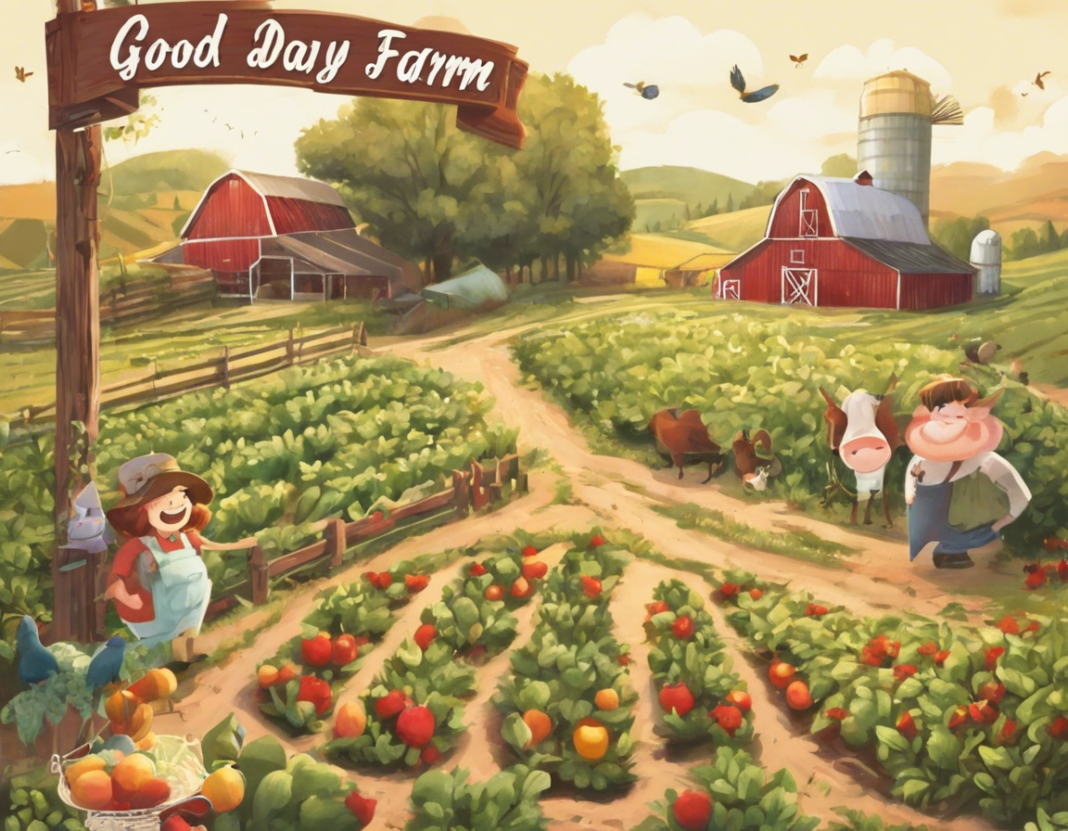Imagine waking up to the sound of roosters crowing, the smell of fresh morning dew, and the sight of sprawling green fields outside your window. This idyllic scene is a daily reality for many farmers who find joy and fulfillment in their work. Harvesting happiness goes beyond the simple act of planting and growing crops – it encompasses a deep connection to the land, a sense of purpose, and a profound satisfaction that comes from nurturing life.
The Joys of Farm Life
Farming is more than just a job; it’s a way of life that brings numerous benefits to farmers and their communities. From the physical labor to the mental challenges, every aspect of farming contributes to a sense of fulfillment and happiness that is hard to find in other professions. Here are some of the key reasons why farmers find joy in their work:
1. Connection to Nature
Farmers have a deep connection to the land and the environment around them. They work in harmony with nature, relying on the sun, rain, and soil to grow their crops. This connection allows them to appreciate the beauty of the natural world and the cycles of life.
2. Purpose and Meaning
Farming provides a sense of purpose and meaning that is often lacking in other jobs. Farmers know that their work directly contributes to feeding their communities and nourishing the population. This sense of purpose gives them a feeling of fulfillment and satisfaction that is hard to replicate.
3. Physical Health Benefits
Farming is a physically demanding job that requires farmers to be active and outdoors for long hours each day. This physical labor not only keeps farmers in shape but also has mental health benefits, such as reducing stress and improving mood.
4. Community Connection
Farmers are an integral part of their communities, providing food and support to those around them. This sense of belonging and community connection is a source of joy and happiness for many farmers who take pride in their role in society.
5. Self-Reliance and Independence
Farming requires a high level of self-reliance and independence, as farmers must make decisions on a daily basis that directly impact their livelihoods. This sense of autonomy can be empowering and contribute to a feeling of happiness and fulfillment.
Tips for Harvesting Happiness on the Farm
While farming can be a rewarding and fulfilling profession, it also comes with its challenges. Here are some tips for farmers to enhance their happiness and well-being on the farm:
1. Practice Gratitude
Take time each day to appreciate the beauty of the land, the hard work that goes into farming, and the bounty that it produces. Practicing gratitude can help shift your focus from challenges to blessings.
2. Take Breaks
Farming is a demanding job that can be physically and mentally exhausting. Make sure to take regular breaks, stay hydrated, and prioritize self-care to prevent burnout and maintain mental and physical health.
3. Set Realistic Goals
Setting achievable goals for your farm can help you stay motivated and focused. Break down larger projects into smaller tasks to avoid feeling overwhelmed and celebrate achievements along the way.
4. Connect with Other Farmers
Building a community of fellow farmers can provide support, advice, and camaraderie. Join local farming groups, attend workshops and events, and share your experiences with others who understand the unique challenges of farm life.
5. Embrace Innovation
Stay open-minded to new technologies and farming techniques that can help streamline your operations and increase productivity. Embracing innovation can improve efficiency and optimizing your farm’s potential.
Frequently Asked Questions (FAQs)
1. How do I start farming if I have no prior experience?
If you’re new to farming, start by researching and learning about different agricultural practices. Consider taking classes, attending workshops, or even interning on a farm to gain hands-on experience. Start small and expand as you gain more knowledge and confidence.
2. What are some common challenges faced by farmers?
Farmers face numerous challenges, including weather fluctuations, market volatility, pest infestations, and regulatory changes. Developing resilience and adaptability is key to overcoming these challenges and succeeding in the farming industry.
3. How can I improve soil health on my farm?
Improving soil health is essential for successful farming. Consider crop rotation, cover cropping, composting, and reducing chemical inputs to nurture the soil and promote sustainable agriculture practices. Consult with agricultural experts or extension services for personalized recommendations.
4. What are some ways to diversify income on a farm?
Diversifying income streams can help stabilize financial returns and mitigate risks associated with farming. Consider adding value to your products through farmer’s markets, agritourism, agri–education, or value-added products. Explore grants, subsidies, or government programs that support diversification efforts.
5. How can I prioritize sustainability on my farm?
Prioritizing sustainability is crucial for the long-term health of your farm and the environment. Implement conservation practices, reduce waste, conserve water, and minimize chemical inputs to protect natural resources and promote ecological balance. Invest in renewable energy sources and adopt organic farming practices for a more sustainable farm operation.


